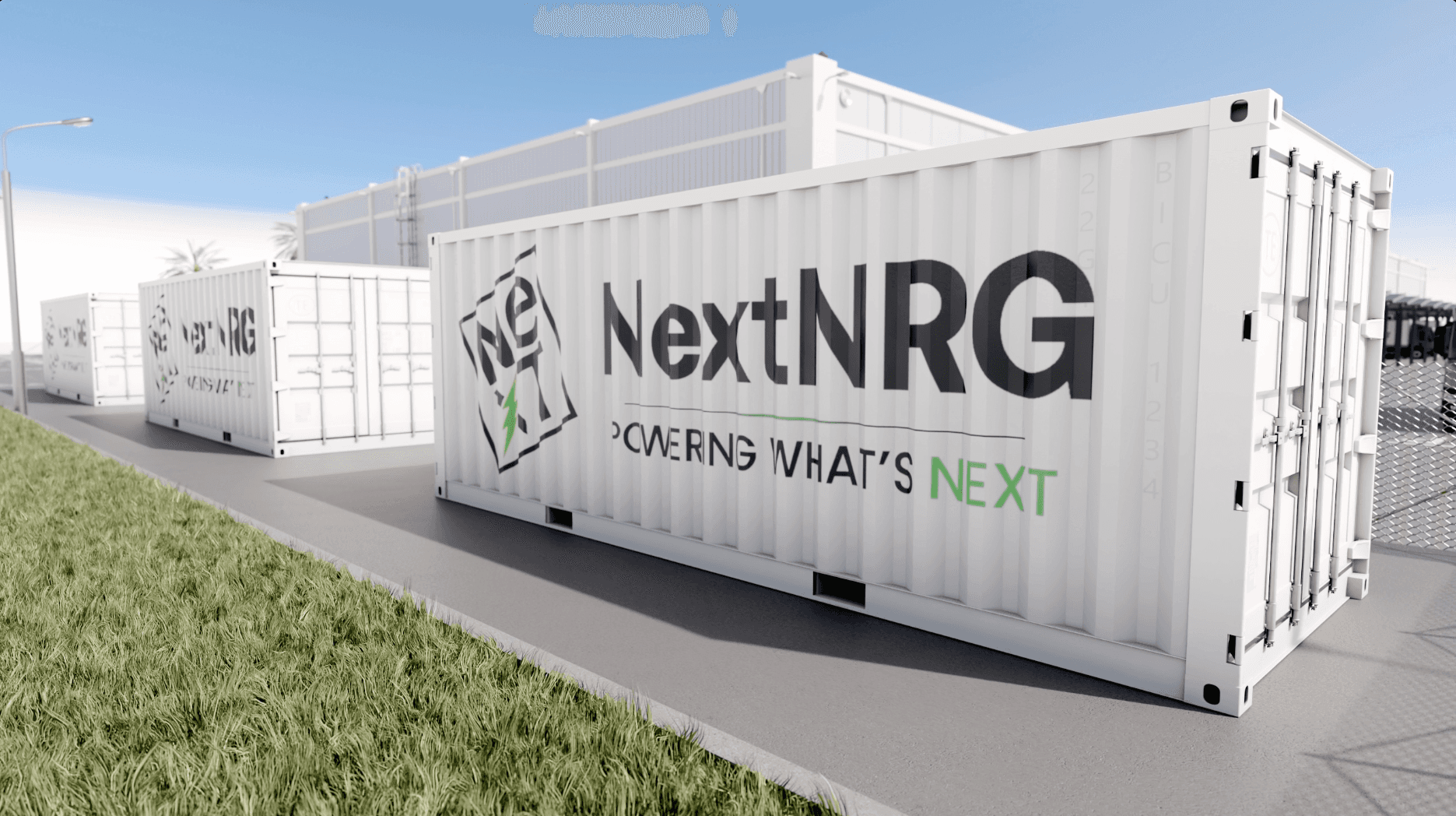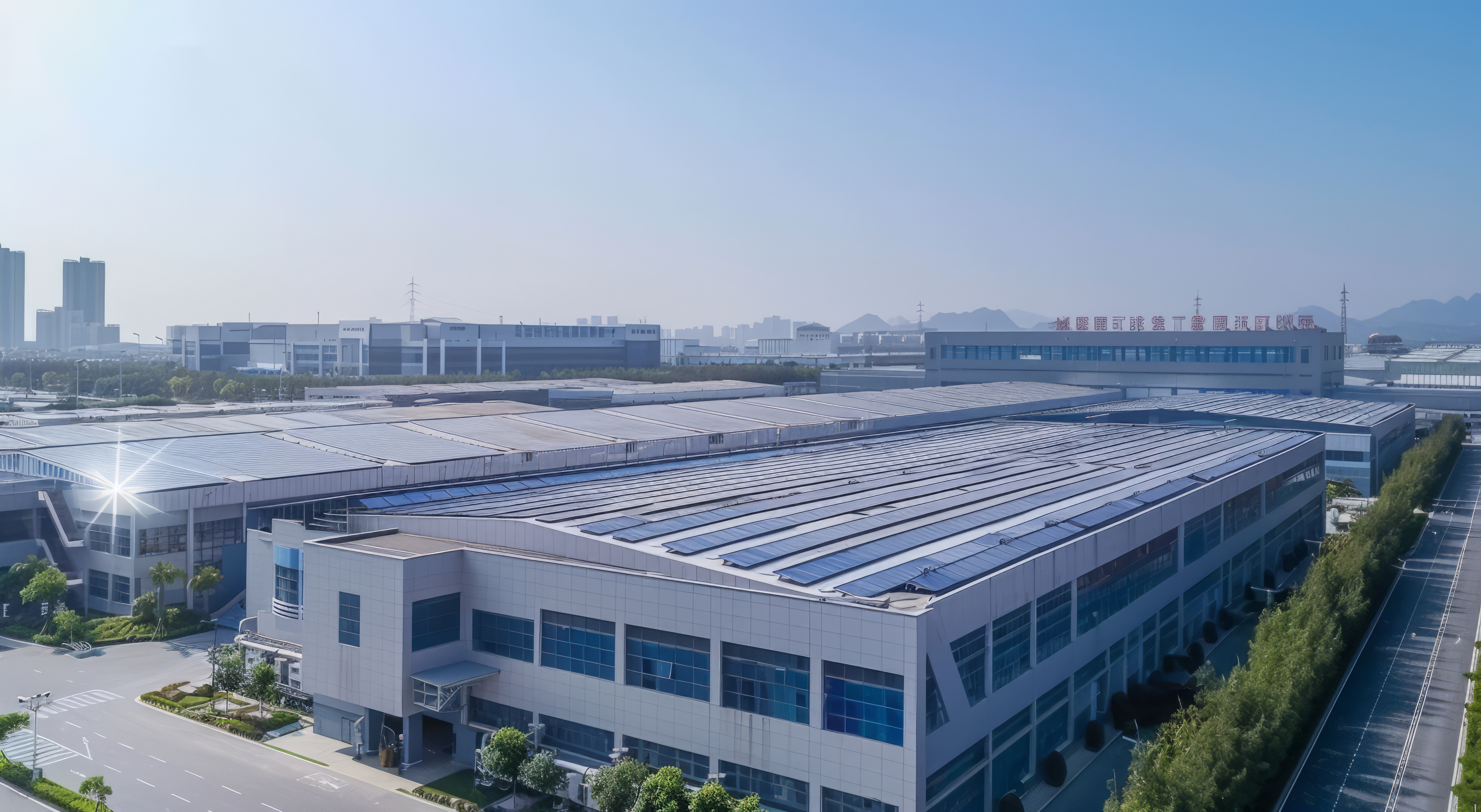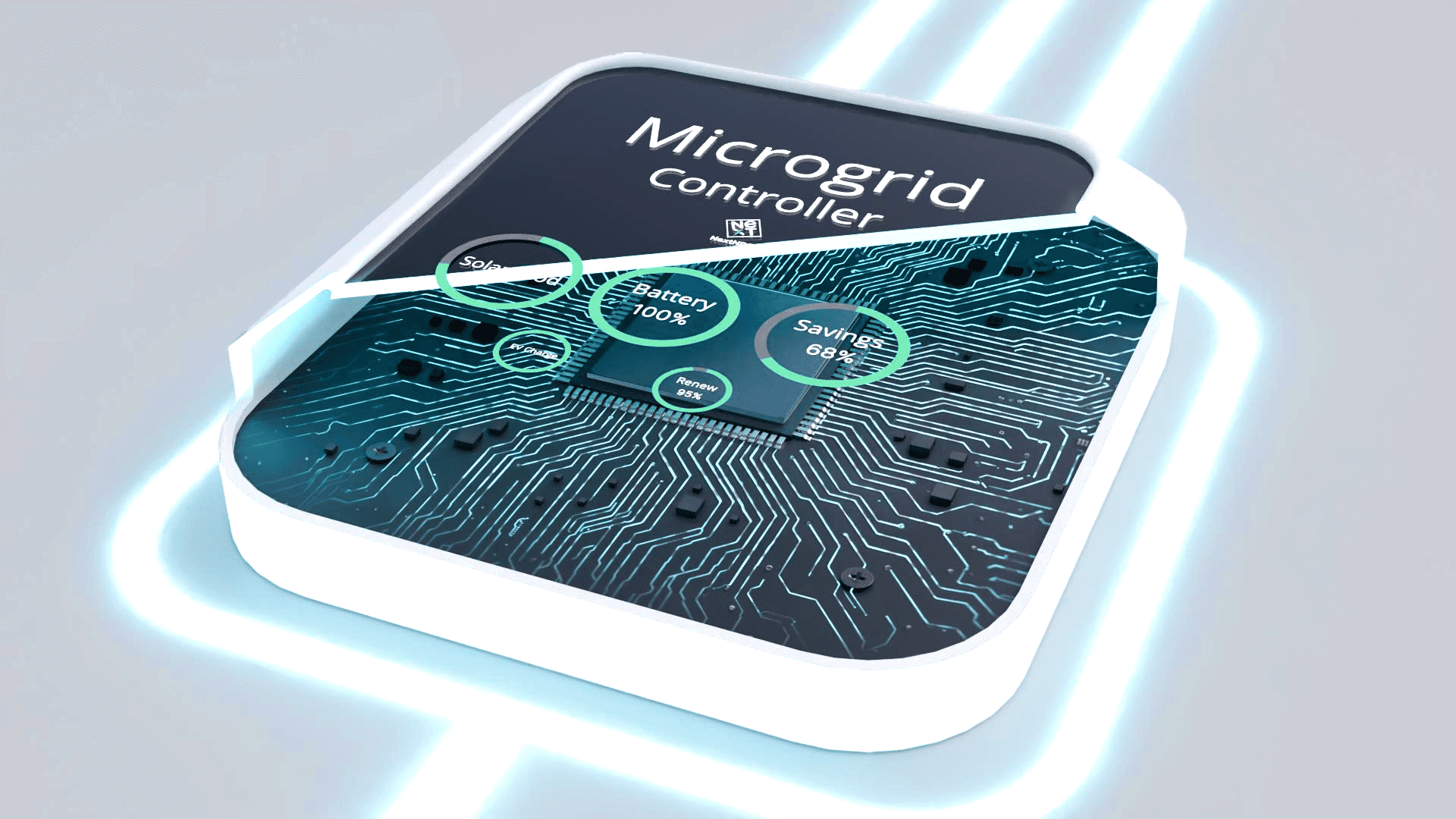
Dec 22, 2024
As the demand for clean energy solutions rises, exploring ways to use solar energy presents a transformative opportunity for you. Solar energy, a pillar of renewable energy, offers sustainable alternatives that significantly reduce greenhouse gas emissions. By harnessing solar power effectively, you can not only decrease your carbon footprint but also enjoy economic benefits through lowered energy costs and increased efficiency.
Incorporating smart technologies like Smart Microgrids can optimize the management of diverse energy sources. Next NRG stands at the forefront of this advancement, enhancing grid efficiency and resilience to ensure a reliable energy supply. Additionally, with innovations in wireless EV charging, you can streamline energy management further, showcasing a commitment to a cleaner future.
The integration of predictive analytics powered by AI and machine learning ensures that your solar energy systems operate at peak performance. This approach enhances the efficiency of solar plants, allowing for data-driven decisions to maximize output. Embracing these technologies positions you to lead in sustainable energy initiatives while contributing to a greener tomorrow.
Basics of Solar Energy
Solar energy harnesses sunlight to convert it into usable power. Understanding how solar panels and cells work is essential to appreciate their role in electricity generation and renewable resource sustainability.
Understanding Solar Panels and Cells
Solar panels consist of multiple solar cells, which are typically made from silicon. These cells capture sunlight and convert it into electricity through the photovoltaic effect. When light photons strike the silicon, they excite electrons, creating an electric current.
Different types of solar cells, such as monocrystalline, polycrystalline, and thin-film, offer varying efficiencies and costs. Monocrystalline cells are the most efficient but also the most expensive. In contrast, thin-film cells are lightweight and flexible, making them suitable for specific applications.
Using high-quality panels, like those from Next NRG, ensures optimal performance in solar installations. Their technology maximizes energy capture and conversion, contributing to reliable energy output. Innovative features can enhance the overall efficiency of solar energy systems.
The Role of Solar Power in Renewable Energy Production
Solar power plays a crucial role in reducing dependence on fossil fuels. It contributes significantly to global electricity generation, offering a clean and sustainable alternative. With the ability to harness energy from the sun, you can help combat climate change.
Solar energy systems can integrate seamlessly with Smart Microgrids, a technology that Next NRG excels in. This integration optimizes grid efficiency by managing diverse power sources and improving resilience. It ensures a reliable energy supply while maximizing the benefits of renewable resources.
The potential for solar energy is vast, particularly as technology advances. By implementing predictive analytics driven by AI/ML, solar plants can achieve up to 95% forecasting accuracy. This improvement boosts efficiency and profitability, making solar a key player in the future energy landscape.
Solar Energy Applications
Solar energy offers versatile applications that can significantly enhance efficiency, sustainability, and cost-effectiveness across various sectors. Exploring specific applications reveals how this renewable energy source can be effectively utilized in residential, commercial, agricultural, and transportation contexts.
Residential Solar Solutions
You can maximize energy efficiency at home with various solar solutions. Rooftop solar panels harness sunlight to generate electricity, helping reduce utility bills. Many homeowners opt for solar heating systems that use sunlight to heat water, providing significant savings on energy costs.
Solar batteries are crucial for storing excess energy generated during the day, ensuring you have power during nighttime or cloudy days. Investing in solar-powered appliances enhances energy efficiency by reducing dependence on traditional electricity sources. Systems like solar ventilation improve air quality while cutting energy costs.
Next NRG offers advanced solutions that integrate into smart homes, optimizing energy use and management through its Smart Microgrid technology.
Commercial and Industrial Uses
Businesses leverage solar energy to decrease operating costs and enhance sustainability. Solar carports provide dual benefits: generating renewable energy and offering covered parking. Implementing solar-powered lighting and HVAC systems can significantly lower energy expenses for large facilities.
Many commercial operations utilize solar water heaters to provide hot water for processes or employee needs, cutting natural gas or electricity usage. The scalability of solar solutions allows industries to tailor systems to their specific energy requirements.
Next NRG facilitates commercial energy management through its AI/ML technology, enhancing predictive analytics and optimizing performance.
Agriculture and Solar-Powered Irrigation
Agriculture benefits tremendously from solar energy applications, particularly through solar-powered pumps. These pumps can efficiently move water for irrigation, reducing reliance on fossil fuels and minimizing operational costs.
Farmers can implement solar irrigation systems that directly harness sunlight for their water needs. This technology allows for precise control of irrigation, promoting better crop yields while conserving water resources.
By adopting solar solutions, you can not only enhance productivity but also contribute to environmental sustainability in agricultural practices.
Solar Transportation and Vehicles
The transportation sector is evolving with the integration of solar energy. Electric vehicles (EVs) are becoming standard, offering a sustainable alternative to gasoline-powered cars. Wireless EV charging technologies further enhance convenience and energy management in your fleet.
Solar-powered vehicles, known as solar cars, utilize photovoltaic cells to convert sunlight directly into energy. This transformative approach can significantly reduce carbon footprints, making personal and commercial transportation more eco-friendly.
Next NRG plays a vital role in solar transportation by providing innovative wireless charging solutions that optimize grid efficiency and resilience, aligning with energy management initiatives.
Solar Energy at Home
Utilizing solar energy at home provides numerous benefits, including reduced energy costs and increased energy independence. Key areas of focus include installing rooftop solar panels, implementing solar heating and cooling solutions, and utilizing solar generators for backup power.
Rooftop Solar Panels and Systems
Rooftop solar panels are one of the most effective ways to harness solar energy for powering homes. These photovoltaic systems convert sunlight directly into electricity, enabling you to reduce reliance on the grid. When installed properly, they can generate sufficient energy to cover your household's needs.
You can opt for grid-tied systems, which allow you to sell excess energy back to the grid, or off-grid systems with battery storage for complete independence. A reputable option for solar solutions is Next NRG, which integrates advanced management technology for optimized solar panel performance. Their systems support smart energy management, enhancing the efficiency of your solar installation.
Heating and Cooling with Solar
Solar energy is also highly effective for heating and cooling your home. Solar space heaters utilize thermal energy, providing efficient warmth through radiant heating. This method reduces utility costs associated with traditional heating systems.
In warmer months, solar water heating systems supply hot water for residential use while minimizing reliance on conventional energy sources. Moreover, solar pool heating systems ensure comfortable swimming conditions, extending your pool's usability throughout the year. Investing in these technologies not only promotes sustainability but significantly lowers your monthly energy bills, making it a cost-effective choice.
Backup Power and Solar Generators
Solar generators offer reliable backup power solutions during outages, ensuring your home's essential functions remain intact. These generators store energy produced by solar panels, allowing you to access power when needed.
The integration of solar generators with your home energy system boosts resilience against grid failures, providing peace of mind. Next NRG optimizes this process through smart microgrid technology, allowing seamless energy management and reconnection capabilities. This ensures that your home can transition smoothly to solar backup power, maintaining critical systems without interruption.
Economic and Environmental Impact
Utilizing solar energy effectively addresses both economic concerns and environmental challenges. You can significantly reduce electricity bills while contributing to a cleaner planet. This section explores the financial advantages and sustainability aspects of solar energy.
Reducing Electricity Bills and Energy Savings
Switching to solar energy can lead to substantial reductions in your electricity bills. By harnessing solar technology, you generate your own electricity, which decreases reliance on traditional utility sources.
Using solar panels allows you to save money immediately and in the long term. Many homeowners report savings of 50% to 70% on their monthly energy expenses after installation.
Additionally, solar energy systems often require minimal maintenance compared to conventional energy sources, thereby ensuring further savings. With smart energy management solutions offered by companies like Next NRG, you can optimize energy use, enhancing efficiency and maximizing savings.
Minimizing Carbon Footprint and Emissions
Adopting solar energy contributes significantly to minimizing your carbon footprint. By replacing fossil fuels with clean, renewable energy, you actively reduce greenhouse gas emissions.
A typical residential solar installation can decrease carbon dioxide emissions by over 100 tons throughout its lifespan. This reduction is crucial in the fight against climate change, improving local air quality and promoting environmental health.
Next NRG enhances these benefits with advanced technologies, ensuring optimized energy production and consumption. By integrating diverse power sources, you can achieve a resilient, low-emission grid that supports sustainability goals.
Energy Independence through Solar Tech
Investing in solar energy promotes energy independence for households and communities. You reduce reliance on external energy sources, providing stability against fluctuating energy prices.
By generating your own electricity, you can shield yourself from market volatility and energy shortages. Utilizing smart microgrid technology from Next NRG effectively manages your energy resources, enhancing resilience and reliability.
Wireless EV charging and integrated power management solutions make it easier to transition to sustainable, independent energy sources. This shift not only benefits you economically but also contributes positively to the overall energy landscape, making a substantial impact on national energy strategies.
Innovations in Solar Technology
Recent advancements in solar technology are expanding the ways you can harness solar energy. This includes innovations in portable devices, applications in remote locations, and the emergence of cutting-edge technologies that promise a sustainable future.
Advancements in Portable Solar Devices
Portable solar devices are revolutionizing how you interact with solar energy in everyday life. Items like solar backpacks and solar lighting solutions are now designed to be lightweight and efficient. For instance, solar-powered security cameras provide enhanced surveillance while being independent of traditional power sources.
Additionally, solar umbrellas and solar phone chargers are making outdoor activities more accessible without sacrificing convenience. The integration of solar textiles allows clothing to generate power for devices on the go. Investing in brands like Next NRG can enhance these capabilities through integrated energy management systems for portable solar technology.
Solar in Remote Locations and Developing Regions
In many remote locations and developing regions, solar technology serves as a primary energy source. Solar pumps are crucial for irrigation, providing reliable water access to crops. Solar dryers can enhance food preservation, reducing waste and extending shelf life.
Solar lighting solutions are vital for extending productive hours in communities lacking electricity. Solar benches, often found in public spaces, offer charging points and seating, promoting social interaction and sustainability. The implementation of such technology is often supported by companies like Next NRG, which optimize energy resources for maximum efficiency.
Emerging Solar Technologies and Future Trends
Emerging technologies like solar-powered desalination are reshaping resource management, especially in water-scarce regions. The integration of smart microgrids allows you to optimize energy use from diverse solar sources, enhancing efficiency and resilience. Next NRG's commitment to advanced energy management can lead to more reliable energy supplies through such models.
Innovations in solar-heated pools and residential power solutions are becoming increasingly popular. AI and machine learning are improving forecast accuracy, allowing for better energy management in solar plants. By combining predictive analytics with existing solar technologies, you can maximize both efficiency and profitability in your energy strategies.
Don’t Miss Out
Join our newsletter to get latest insights for your brand growth!





